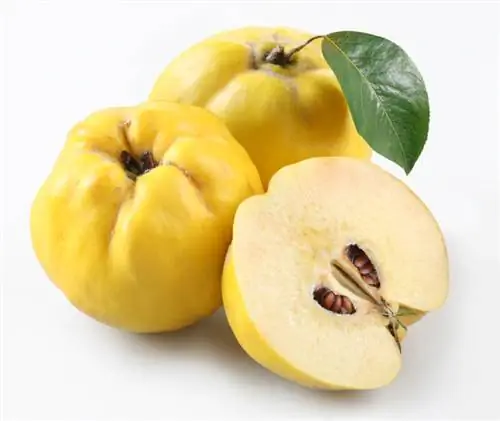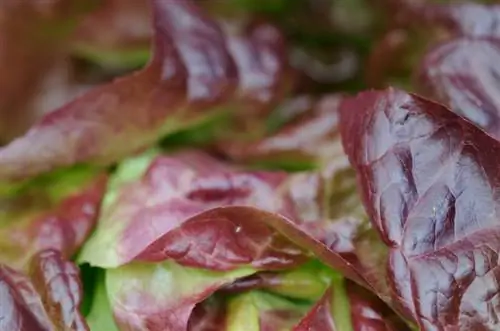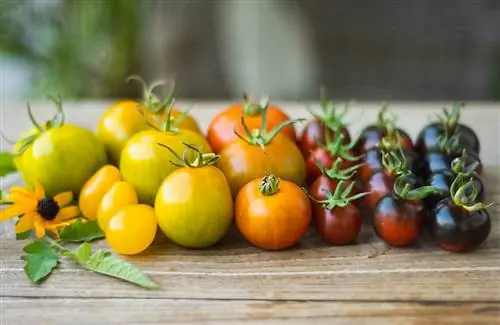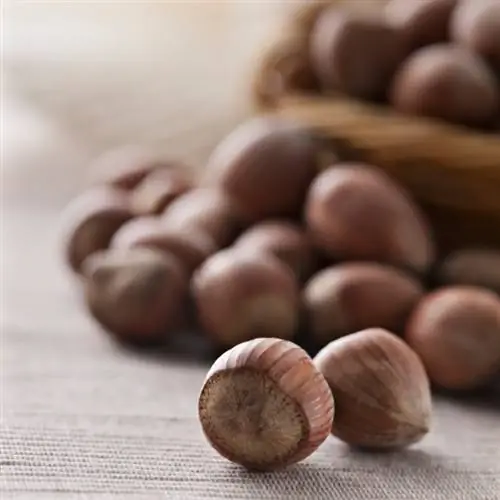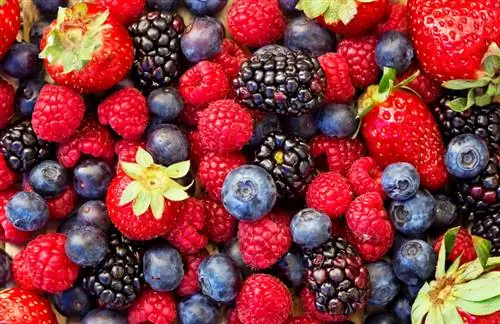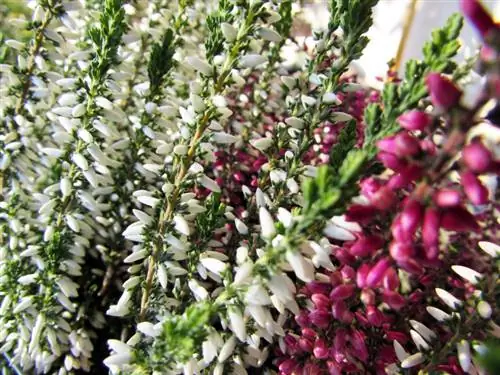- Author admin leonars@hobbygardeners.com.
- Public 2023-12-16 16:46.
- Last modified 2025-06-01 06:02.
All quince varieties are self-pollinating. From the second year after planting, the first fruits seduce with their versatile charm. Small to medium-sized specimens are well suited to windy regions. Browse through a diverse variety of varieties.
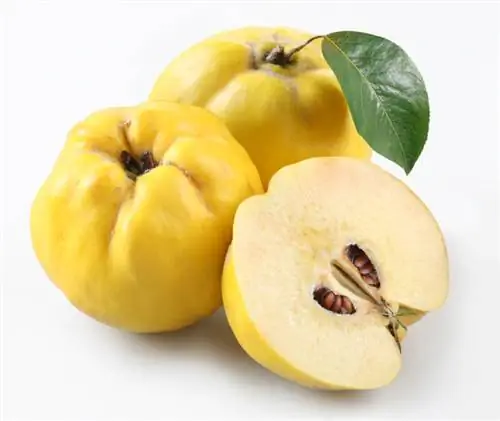
What types of quince are there and how do they differ?
Quince varieties can be divided into apple and pear quinces. Apple quinces are round, strongly aromatic and have hard, dry flesh. Pear quinces are more elongated, less intense in taste and have softer flesh. Both species are self-pollinating and versatile.
A remarkable variety of varieties
After the turn of the millennium, the German quince population was recorded. Records at the time documented 56 different quince varieties throughout Germany.
In addition, experts have observed that particularly sensitive quince varieties are gradually being replaced by resistant varieties. The oldest varieties were produced through selection. Even today, new breeding varieties are constantly expanding the excellent stock.
Systematics: Apple and Pear Quinces
All quince varieties can be assigned to the following categories.
Apple Quinces
- Shape: round
- Taste: strong in aroma
- Flesh: hard, very dry
Pear Quinces
- Shape: slightly elongated towards the fruit stem
- Taste: less intense
- Flesh: soft
Ideal varieties for making fruit spreads
Franconian house quince, cotton quince or nutmeg quince are suitable for this purpose. Other varieties are also available depending on the growing region.
Raw consumption
Although the original quinces are not edible raw, new varieties are very suitable. These include the honey quince as well as the raw food variety.
More varieties in alphabetical order:
A
- Adamsova
- Agrambari
- Asenitsa
- Aurelia
B
- Bencikli
- Bereczki apple quince
- Bereczki pear quince
- Blanar
- Brna
- BQ 7-27
- Buchlowice
C
- Champion
- Cydora
- Cukurgöbek
- Cydopom
- Cydora EQ6-35
D
- Danuviana
- De Mosna
E
- Ekmek Ayvasi
- EQ 3-34
G
- Gamboas
- Gutui de Husui
H
- Hehn
- Hemus
- Hruskovita
I
- Isfahn
- Ingenheim bomb quince (Ingenheim giant quince)
- Ispolinskaya
- Izobilnaya
J
Jablowidna Plovdivska
K
- Constantinople
- Krymska - rannjaja
L
- Le Bourgeaut
- Leskovacz
- Ludovic
M
- Maliform Aurii
- Meech's Prolific
- Multiforma Frankonia
- Mostquince
- Matador
O
Otlicnica
P
- Pazardzhinska
- Pear Shaped
- Pinter
- Plovdivskaya
- Portuguese
Q
Quebec apple quince
R
- Radonia
- Rea's Mamuth
- Ronda
S
- Seker Gevrek
- Shams
- Siselen
- Söbü
- Sofranii
- St. Germain
T
- Tencara
- Toronto Pear Quince
- Triumph
- Turkey No.4
- Turuncuskaja
U
Uspech
V
- Vogelsburger apple quince
- Villanova
- Vogelrüti
- Vranja
W
- Waldviertler
- Wirena
- Wudonia
- Würzburger Goldquince
Note:
Cydonia sinensis is the wood quince. Occasionally it goes by the name Pseudocydonis. The cross between quince and pear is called Pyronia veitchii.
Tips & Tricks
Inform yourself about regional characteristics before you buy. This way you are on the safe side and the quince variety will thrive in your garden.

